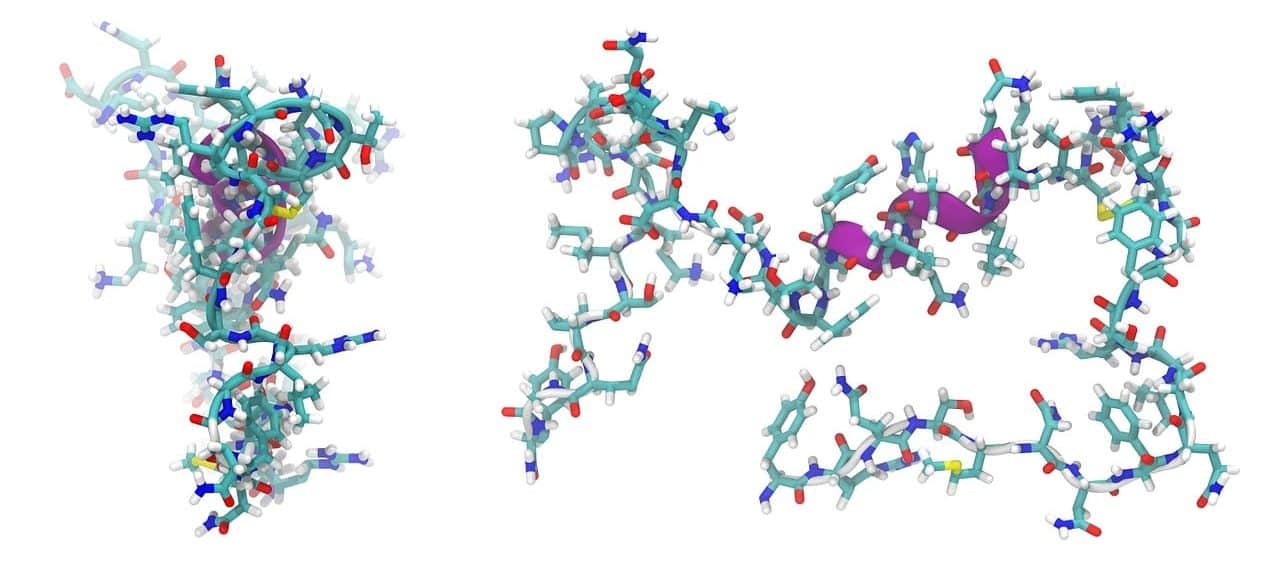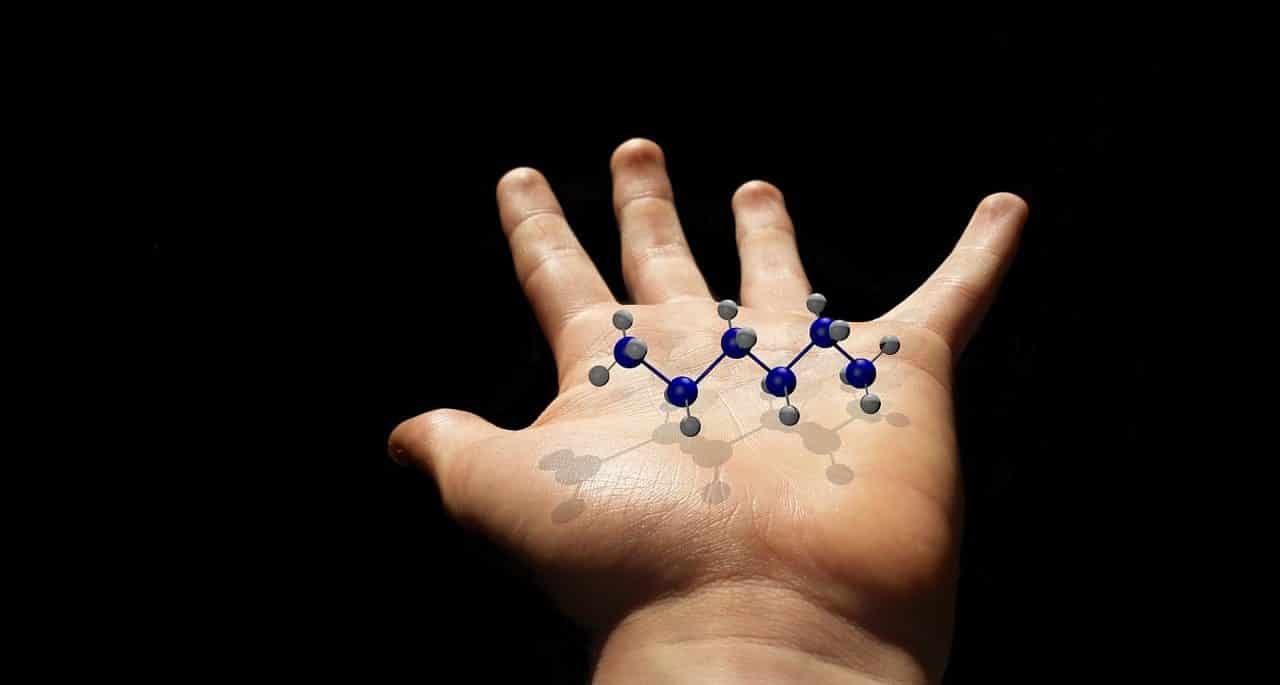
Peptides are molecules developed through the relationships established by certain amino acids.
Peptides are molecules composed of the bonds established by certain amino acids (which, in turn, are certain classes of organic molecules). The relationship between amino acids was established through what is known as a peptide bond .
It is important to note that proteins are also formed through the unions of amino acids . Generally, when more than a hundred amino acids are involved, we speak of proteins, while molecules that have a smaller amount enter the group of peptides. Peptides, therefore, have a lower mass .
The properties of the molecules that participate in the bond and the number of them make it possible to distinguish between the different types of peptides. It is possible to speak, in this sense, of polypeptides (which are those peptides with more than ten amino acids, but with a lower number than proteins) or oligopeptides (which have less than a dozen amino acids).
About peptides
In addition to everything stated above, we cannot ignore the existence of another series of important data of interest about peptides:
- There is what is known as a peptide sequence . This is a term used to refer to the order of the amino acids that give it its shape.
- Within oligopeptides, we cannot forget the various classifications within the group. For example, there are tetrapeptides , which are called that when the number of amino acids is 4; the tripeptides , when that number is 3; dipeptides , when the number is 3…
When peptides serve as a defense against the action of other organisms (that is, they are antibiotics), they are called antimicrobial peptides . According to the way in which they are synthesized, we can speak of antimicrobial peptides of ribosomal synthesis or antimicrobial peptides of non-ribosomal synthesis .
As examples of peptides we can mention oxytocin (a hormone that causes contractions in the muscles of the uterus) and glucagon (responsible for regulating the level of glucose found in the blood ), among other molecules of great importance for the body. .

There are different types of peptides.
News about these molecules
Periodically, due to different circumstances, peptides become protagonists of the news. Thus, for example, several years ago the discovery of a new peptide was announced: the one called 1018 . This, as has been made public, has the capacity to carry out the alteration of the functioning of the different groups of microorganisms.
On the other hand, we cannot miss the discovery in 2015 of a peptide that, administered in a specific area of the brain, exactly the central amygdala, manages to significantly reduce a person's desire to eat. Hence, it serves to put a stop to such a serious health problem as obesity. This is PACAP (Adelinate Cyclase Activating Peptide) .
